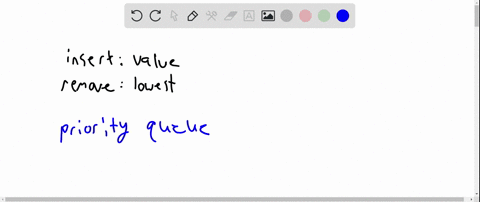
If the QueueSender is created with an unidentified Queue, an. In this case, an attempt to use the send methods for an unidentified QueueSender will throw a. Normally, the Queue is specified when a QueueSender is created. Nonetheless, if you need to traverse the data in this way a priority queue may not be the right data structure for your needs. A client uses a QueueSender object to send messages to a queue. Know in depth about its key points and methods.

The only disadvantage is that you're holding an extra-copy of the queue. Java Priority Queue can be termed as the purest form of architecture that defines what queue elaborates.
So you may as well just grab all the elements in the queue and sort them (also O(n log (n)) )and then you can go through them as you wish. java.util Interface ComparatorTo get the second next one you must dequeue the smallest top element, that's how it works.ĭequeing (re-heapify = O(log n) time) isn't just a matter of taking that element out, the underlying structure rearranges itself in order to bring the element with the least priority first.Īlso, to go through the entire priority queue to read all items in the sorted order, it is an O(n log(n)) operation. What is the PriorityQueue.offer () method in Java WebThe PriorityQueue.offer() method is present in the PriorityQueue class inside the java.util package. Peeking (read the top element heap in the heap) is constant time O(1) because it looks at the smallest element. PriorityQueue (int initialCapacity) Creates a PriorityQueue with the specified initial capacity that orders its elements according to their natural ordering.
It's not a sorted array, so that you can just go from one element to the one with the lesser priority. PriorityQueue ( Comparator < super E > comparator) Creates a PriorityQueue with the default initial capacity and whose elements are ordered according to the specified comparator.
clear(): All the elements in the PriorityQueue will be removed. size (): Count of elements in the collection will be returned. add (E e): Element e will be added to the PriorityQueue on calling this method. You can't traverse a Priority Queue in that order because of the underlying implementation (I think it's min-heap in Java). Now, let us see some of the commonly used methods in Java PriorityQueue: 1.


 0 kommentar(er)
0 kommentar(er)
